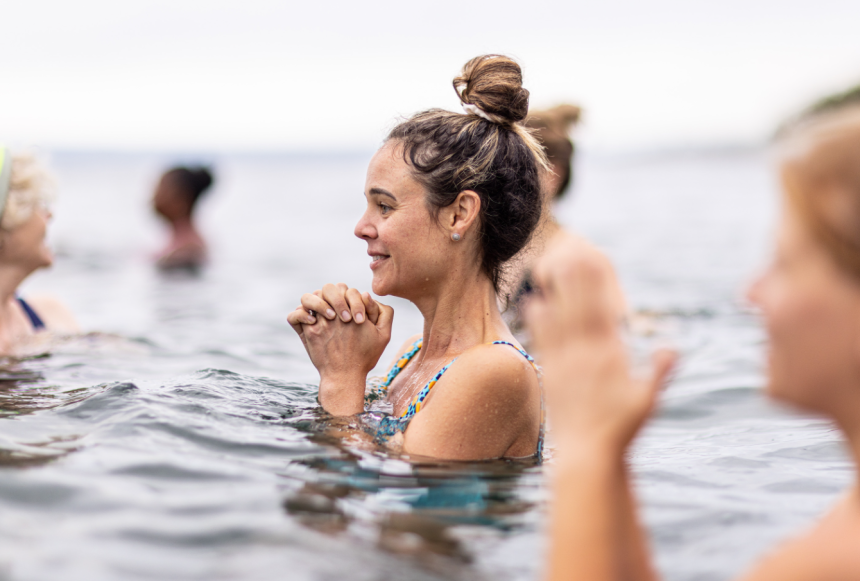In today’s fast-paced and demanding world, anxiety and stress have become all too common. Many individuals are constantly seeking new ways to manage these overwhelming emotions. One technique that has gained popularity recently is the use of cold plunges. Cold plunges, when incorporated into your routine, can help alleviate anxiety and stress, leaving you feeling refreshed and rejuvenated. But how exactly do cold plunges work, and what is the science behind their effectiveness?
Understanding Anxiety and Stress
Before delving into the world of cold plunges, it is essential to have a basic understanding of anxiety and stress. Anxiety is a natural response to a perceived threat, while stress refers to the body’s reaction to any demand or challenge. While experiencing occasional anxiety and stress is normal, prolonged and excessive feelings of both can have detrimental effects on your mental and physical well-being.
Anxiety is a complex condition that involves a delicate balance of neurotransmitters in the brain. Research suggests that anxiety is associated with an imbalance of serotonin, a neurotransmitter responsible for regulating mood, sleep, and appetite. Additionally, abnormal levels of other neurotransmitters, such as norepinephrine and dopamine, can contribute to the development and persistence of anxiety.
Understanding the science behind anxiety can help individuals grasp the intricacies of this condition. It is important to note that anxiety is not simply a result of weak willpower or a lack of coping skills. Rather, it is a complex interplay of biological, psychological, and environmental factors.
When it comes to stress, its impact on your overall health cannot be underestimated. When you are under stress, your body releases stress hormones like cortisol and adrenaline, which prepare you for a fight-or-flight response. This response can be beneficial in short bursts, helping you to react quickly to dangerous situations. However, chronic stress can lead to a range of health problems.
Chronic stress can have a profound impact on various systems within the body. It can disrupt your immune system, making you more susceptible to infections and illnesses. It can also affect your cardiovascular system, increasing the risk of high blood pressure, heart disease, and stroke. Moreover, chronic stress can take a toll on your mental health, contributing to the development of anxiety disorders, depression, and other mental health disorders.
Recognizing the impact of stress on your health is crucial in managing and mitigating its effects. While it may not be possible to eliminate stress entirely from your life, there are various strategies and techniques that can help you cope with stress more effectively. These include practicing relaxation techniques, engaging in regular physical activity, seeking social support, and adopting healthy lifestyle habits.
The Concept of Cold Plunges
If you’re searching for a natural and accessible way to manage anxiety and stress, consider incorporating cold plunges into your routine. But what exactly is a cold plunge, and how can it benefit your overall well-being?
What is a Cold Plunge?
At its core, a cold plunge involves immersing your body in cold water for a short period, usually ranging from a few seconds to a couple of minutes. Cold plunges can take various forms, such as full-body submersions in natural bodies of water, ice baths, or even showers set to their coldest temperature.
The History of Cold Plunges
The use of cold plunges for therapeutic purposes dates back centuries. Ancient civilizations, including the Greeks, Romans, and Scandinavians, recognized the health benefits of cold water immersion. They believed that the shock of cold water provided both physical and mental rejuvenation. Today, this timeless practice continues to be embraced by wellness enthusiasts around the world.
The Science of Cold Plunges
While the concept of cold plunges may seem straightforward, the science behind their effectiveness is fascinating. Cold plunges exert a series of physiological responses in the body that can help alleviate anxiety and stress.
How Cold Plunges Affect the Body
When your body is exposed to cold water, it triggers a physiological response known as cold shock response. This response activates various systems in the body, including the nervous, cardiovascular, and lymphatic systems. As a result, your body releases endorphins, which are known as “feel-good” hormones. Endorphins contribute to a sense of euphoria and overall well-being, reducing anxiety and stress levels.
The Psychological Impact of Cold Plunges
Cold plunges also have a noticeable psychological impact. By willingly subjecting yourself to discomfort, you can train your mind to develop resilience and tolerance to stressors. This enhanced psychological resilience can carry over into other aspects of your life, helping you better manage anxiety and cope with stressors as they arise.
Cold Plunges and Mental Health
When it comes to mental health, cold plunges can be a valuable tool in your self-care toolkit. Here’s how cold plunges specifically benefit individuals struggling with anxiety and stress:
Cold Plunges and Anxiety Reduction
The cold water’s shock to your system can effectively distract your mind from anxious thoughts and redirect your focus to the immediate physical sensations. Additionally, cold plunges promote deep breathing, which activates the parasympathetic nervous system, responsible for the body’s relaxation response. By engaging the parasympathetic nervous system, cold plunges can provide a sense of calm and diminish anxiety symptoms. That is one of the main reasons why there are currently numerous companies providing special cold plunge tubs for your home that millions of people are using daily.
Stress Relief Through Cold Plunges
Cold plunges also act as powerful stress relievers. The invigorating sensation of cold water stimulates the release of dopamine, a neurotransmitter associated with pleasure and reward. This release not only reduces stress but also fosters an overall sense of well-being. Moreover, cold plunges improve circulation, decrease muscle tension, and promote better sleep, all of which contribute to stress reduction.
How to Incorporate Cold Plunges into Your Routine
Ready to give cold plunges a try? Here are some essential steps to help you incorporate them into your routine and maximize their beneficial effects:
Preparing for Your First Cold Plunge
Before taking your first cold plunge, it is crucial to prepare your body gradually. Begin with shorter exposure times and gradually increase them as your body adapts to the cold water. It is also important to ensure your safety during a cold plunge by having a designated spotter or friend nearby.
Making Cold Plunges a Habit
In order to reap the full benefits of cold plunges, consistency is key. Start by committing to a regular schedule, whether it be daily, a few times a week, or even once a week. Additionally, consider incorporating other relaxation techniques into your routine, such as deep breathing exercises or meditation, to enhance the overall effectiveness of cold plunges.
In conclusion, if you are seeking a natural and accessible method to combat anxiety and stress, cold plunges may be a valuable addition to your self-care routine. With their physiological and psychological benefits, cold plunges can help you better manage anxiety, reduce stress levels, and improve your overall well-being. So, take the plunge into cold water and discover the transformative power of this ancient practice.















